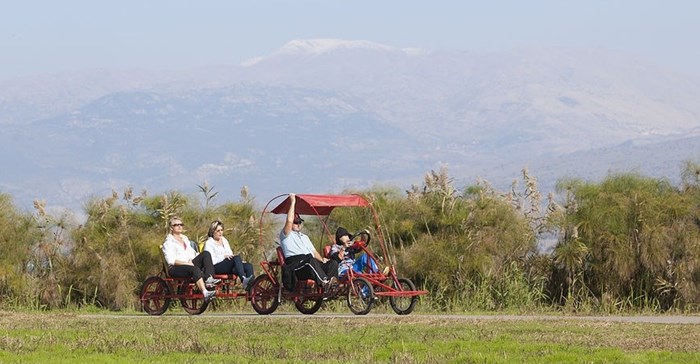
Top stories






More news


Marketing & Media
Ads are coming to AI. Does that really have to be such a bad thing?














As the world preps for the second United Nations Environmental Assembly (UNEA) to take place in Nairobi on 23 to 26 May, all eyes will be on the global convention which will seek to, among other issues, fast-track action on previously agreed agendas, especially on curbing illegal wildlife trade, the continent's adaptation to changing environments and structuring ways of delivering on the 2030 Agenda.
It takes the efforts of us all to ensure sustainable tourism, therefore, even as the world leaders converge over this agenda, it‘s important for individuals to take responsibility and ownership of goals and actions that support this calling. Here are a few guidelines on how to possibly contribute to achieving sustainable tourism.
The wildlife is made and cut for the wild. Pictures of celebrities dotingly posing with animals in zoos and parks have in recent times raised public outcry by conservationists. This is not just blissful push for cheap publicity, it’s a concern to the few who understand that over-stimulation and integration with humans do upset the animals’ way of life, sometimes rendering them incapable of living in their natural habitats or co-existing with their species.
The locals do appreciate every dime and dollar invested in their environs by the tourists and the development therein. However, tolerance and patience are very vital virtues when mixing up and visiting new cultures. For instance, religious differences, family values, mealtimes and even greetings may differ with every culture, but none will whatsoever be formed to endanger the lives of a traveller. They say “when you go to Rome, do as the Romans … or at least, respect the Roman way!” The downside of disrespecting people’s culture, apart from missing on great learning opportunities, is that you will certainly be fuelling up hostility thereby hampering efforts to realizing the full potential of the particular destination.
Among other issues, high traffic areas are also prone to vices rising from the cosmopolitan integration of cultures, with concerns raised worldwide on the rise of commercial sex rings, child trafficking, and molestation as well as drug and substance abuse. It’s normal for otherwise ‘sane and sober’ persons to adopt a totally different personality while away from home without caring much about the impact, both on self and on residents. Upholding morals and championing human rights and dignity is a sure fire way of ensuring sustainable tourism, profitable to both guest and host community.
Sounds obvious, right? But you’ll be horrified how many beaches are clogged up with all sorts of trash. It’s not just unsightly, but also causes harmful exposure to the sea life, who, apart from exposure to unsafe water will also be at risk of getting stuck in plastic and metal ware, or even lost kaftans and scarves. In-land, it’s not uncommon to see motorists shamelessly throwing out trash along the by-roads and in the peripheries of national parks as well as backdrops of waterfalls. Littering, beyond clogging up systems, does say a lot about the offender. Do not be that person.
Do not carry anything that you should not from your destination. Cases of abducted animals, missing crafts, and lost information are common in tourism circles. Remember, the next person visiting after you will also be hoping to enjoy and indulge in the same original experience. The only thing you should take are pictures, the only thing you should take with you are memories.
